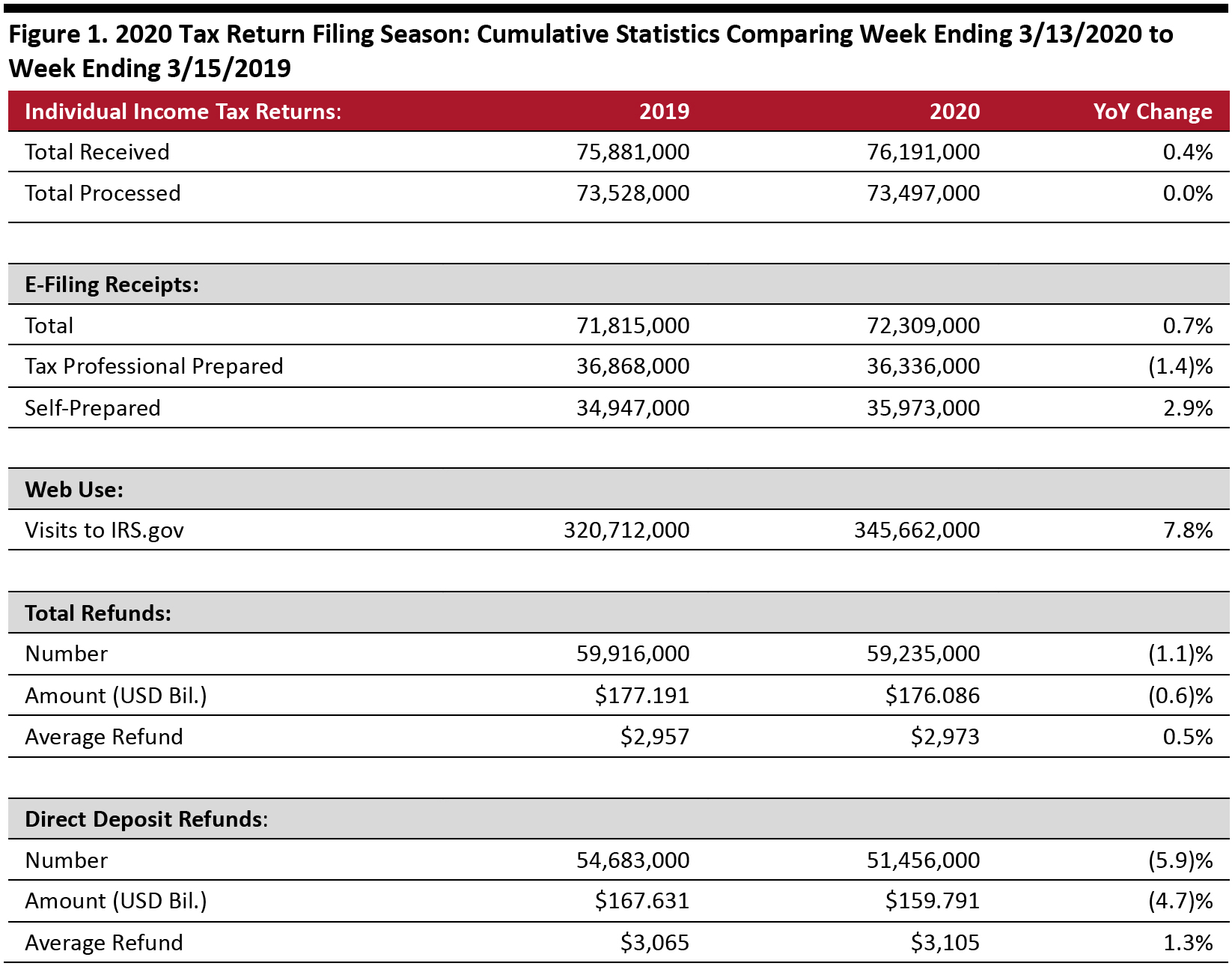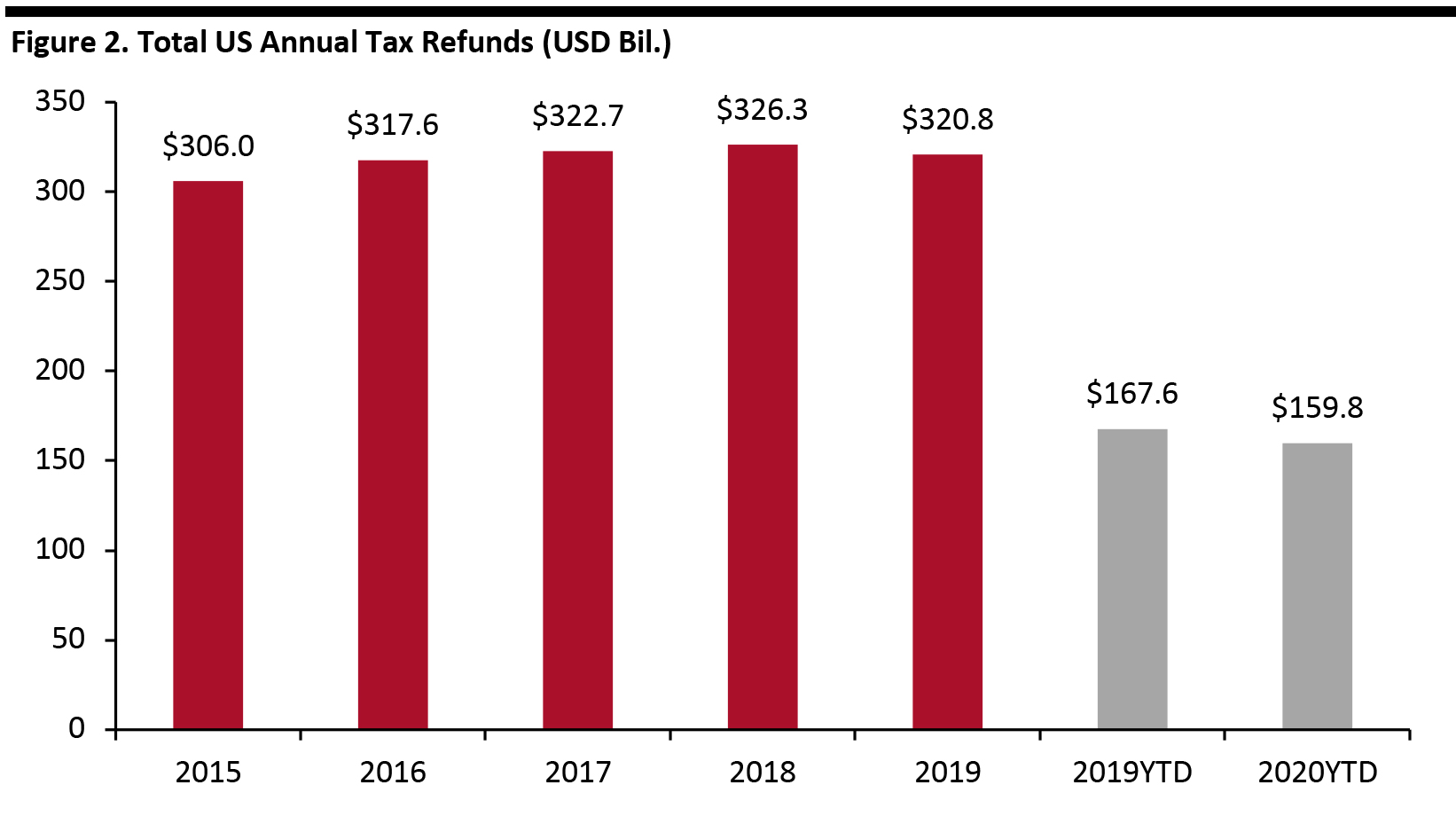DIpil Das
Each year, the IRS reports tax return filings and refunds on a weekly basis, starting at the end of January until the April 15 deadline. This year, the US Department of the Treasury (of which the IRS is a division) announced the deadline to file (and more importantly, to pay) has been extended to July 15. The move comes as the IRS temporarily closes all Taxpayer Assistance Centers and cancels all face-to-face customer service nationwide until further notice.
In this report, we look at what happened in the seventh week of the 2020 tax filing season.
Tax Filings: Covid-19 Update
 Source: IRS [/caption]
The graph below shows total refunds increasing at a 1.2% CAGR during 2015-2019.
[caption id="attachment_106229" align="aligncenter" width="700"]
Source: IRS [/caption]
The graph below shows total refunds increasing at a 1.2% CAGR during 2015-2019.
[caption id="attachment_106229" align="aligncenter" width="700"] Source: IRS [/caption]
Source: IRS [/caption]
- In response to the ongoing coronavirus outbreak, the IRS has extended the deadline to file—and pay—2019 tax returns until July 15. However, the IRS did urge taxpayers (especially those expecting a refund) to file by April 15 if they can as the agency is still processing returns and issuing refunds within 21 days.
- The extension to pay means no interest or penalties for payments up to July 15, regardless of amount owed.
- The extension applies to all taxpayers: individuals, corporations, trusts, estates and those who pay self-employment tax.
- Taxpayers are not required to file any additional forms or to contact the IRS to qualify for the automatic extension. Those who want to file after the July 15 deadline have to file a form requesting an extension.
- The IRS had received 76.2 million tax returns and processed 73.5 million as of March 13, 2020. The number of returns processed was up 0.4% year over year.
- We expect tax filing numbers to fall year over year in the coming weeks as taxpayers take advantage of the extension to file, although those owed a refund may not delay.
- Of the returns filed already, 94.9% were filed electronically, of which 50.3% were prepared by tax professionals, and the remaining 49.7% self-prepared.
- A higher number of taxpayers used the IRS website for information: The site logged about 345.7 million visits, up 7.8% year over year. The number of visits are likely to rise substantially in the coming weeks given that Taxpayer Assistance Centers are closed and face-to-face customer service meetings cancelled until further notice.
- A total of 59.2 million refunds had been issued as of March 13, totaling $176.1 billion and averaging $2,973 each. The number of refunds issued was down 1.1% and the total amount refunded was down 0.6% year-over-year. However, the average refund grew 0.5% year over year.
- Of those refunds issued, 86.9% were paid using direct deposit. The average direct deposit refund was $3,105 up 1.3% year over year.